The drugs issue
Red Line is a journalist collective reporting on democracy, environment and culture
Drugs are big business. The global trade is worth between US$426 and US$652 billion has destabilised countries and regions. Even the Netherlands, despite its wealth and stable democracy, is being turned upside down.
Red Line’s Balkans specialist, Ingrid Gercama, recently tracked how Serbian organised crime runs drugs through Dutch ports. Her article in the Dutch newspaper NRC, published on 6 March 2025, provides upclose insight into the trade.
Even before the loot is in, they toast champagne in their car. With glasses in their hands, the three men take photos of each other and do the Serbian three-finger salute, a symbol of national pride. It is a cool Sunday evening in August 2020 and the three are waiting for 743 kilos of cocaine, hidden among a load of bananas that is on its way from Ecuador to the port of Rotterdam.
The next morning, the men wait for the container at an industrial estate in Maassluis. "We're going to the storage facility now, mate, let's see what happens," one of them writes to his boss via the encrypted communication service Sky ECC, seen by NRC. When the cocaine appears to have passed customs, the mood is excellent, as is evident from a subsequent message.
“Live long mates...have a drink for me.”
Read on our website | Read on NRC
The legalisation of drugs
A former president of South Africa, Kgalema Motlanthe, has had a road to Damascus conversion. He’s realised that the War on Drugs is futile and destroys lives. He’s not the only head of state to come to this conclusion. Last month, Politico ran a story on the president of Colombia’s views.
President Gustavo Petro was quoted to say, “If somebody wants peace, the business [of drug trafficking] has to be dismantled. It could be easily dismantled if they legalized cocaine in the world. It would be sold like wine.”
Red Line’s Tristen Taylor examined Kgalema Motlanthe’s reasoning in a 2023 opinion piece for Business Day. In the article, Tristen writes:
Motlanthe hasn’t lost his mind. The current paradigm of prohibition started when the US Congress passed the Harrison Narcotics Tax Act of 1914, which regulated the sale of cocaine and opium. Before the act these products and their derivatives were widely available as over-the-counter medications — you could get the stuff via mail order. Pre-packaged syringes filled with heroin, for example.
The act was passed in a swirl of racial and religious hysteria. In the run-up to the vote The New York Times ran an article in support titled “Negro Cocaine Fiends Are New Southern Menace: Murder and Insanity Increasing Among Lower-Class Blacks”. The general discourse was that cocaine, opium and marijuana caused savage Chinese, blacks and Mexicans to rape white women.
When added to the contemporaneous and fundamentalist Christian temperance movement to ban alcohol — the law on that was passed in 1919 — the resulting frenzy doomed any rational and humane approach to drug addiction.
Read on our website | Read on Business Day
The khat market in Harar, Ethiopia
Khat, an amphetamine, is legal in Kenya, Ethiopia, Somalia and Yemen. Last year, Nathalie Bertrams and Tristen Taylor went to the largest khat market in Ethiopia to see the trade in action.
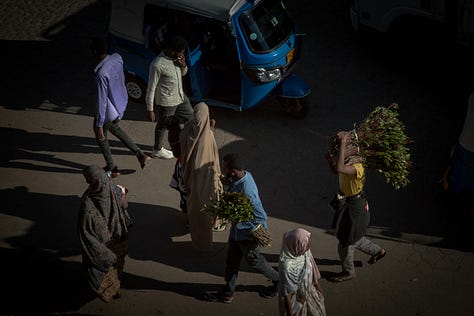
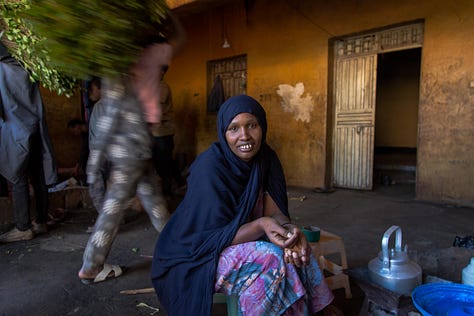
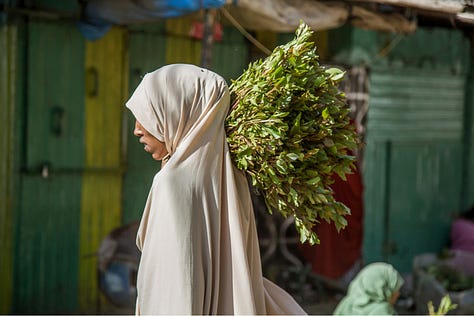
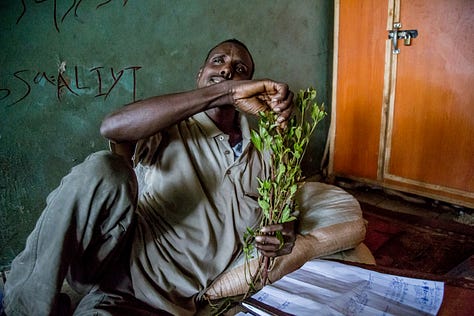
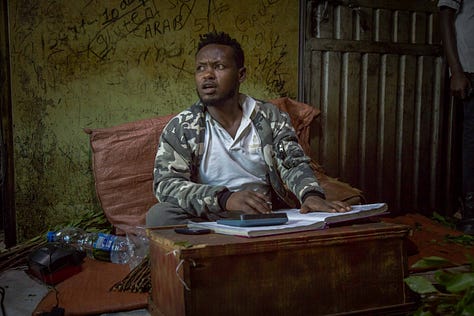
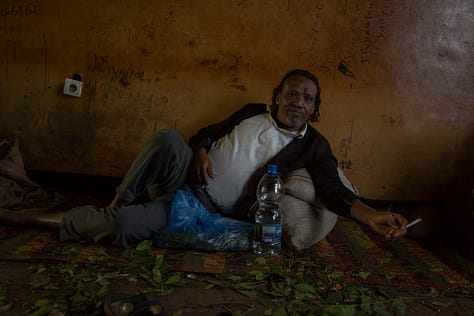
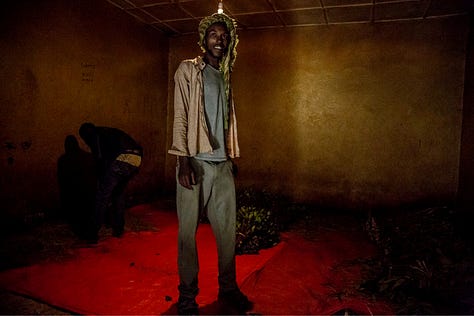
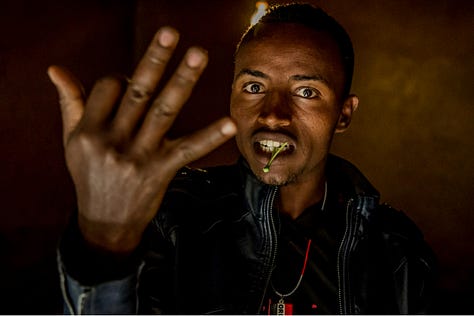
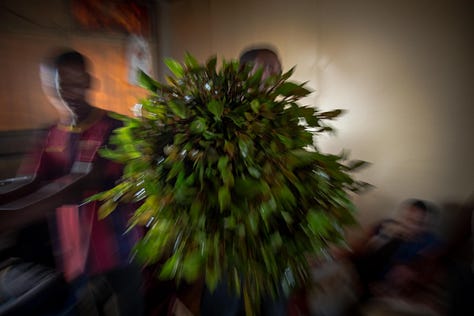
What we are reading, watching and listening to
Ingrid’s hooked on the series Mr Bates vs The Post Office. For years, The UK’s Post Office in the UK screwed over working class postmasters and postmistresses. Then the epitome of stubbornness came along, Mr. Bates. She is reading Dark Wire: The Incredible True Story of the Largest Sting Operation Ever by Joseph Cox.
The Expedition: Solving the Mystery of a Polar Tragedy by Bea Uusma is Nathalie’s current read: three men in a hydrogen balloon disappeared in the Arctic in 1897. As appropriate for an environmental investigative reporter, she’s watching Toxic Town.
Sometimes memes are true. Tristen, the only guy on the team, is reading about the Roman Empire. Tom Holland’s PAX: War and Peace in Rome’s Golden Age. If you ever wanted to hear David Runciman rail against the age for nearly an hour, The Leviacene: Defining Our Times is your chance.
Photo exhibition in Johannesburg
Tristen is exhibiting his photo series on South Africa’s amaBhaca. You’re invited to the opening!
KwaBhaca, located in southern KwaZulu-Natal and northern Eastern Cape, the old Transkei, is the home of the amaBhaca, one of South Africa’s least-known ethnic groups. The last few remaining isiBhaca speakers are in their eighties and nineties and the youth are rapidly assimilating into the dominant Zulu and Xhosa cultures.
Curse this homogenising world.
About Red Line
Nathalie, Ingrid and Tristen investigate under-reported issues across the globe, uncovering the forces that shape our world. Our work focuses on democracy, culture and environmental crimes. We follow the money, track the powerful and dig deep to expose what lies beneath the surface. Through long-form reporting, documentary photography and multimedia storytelling, we bring hidden stories to light. Because facts and accountability matter.
Website: www.redline-collective.org
Got a story tip? Email us at: hello@redline-collective.org
Want to support our work? Please give us a coffee. Even better, subscribe!




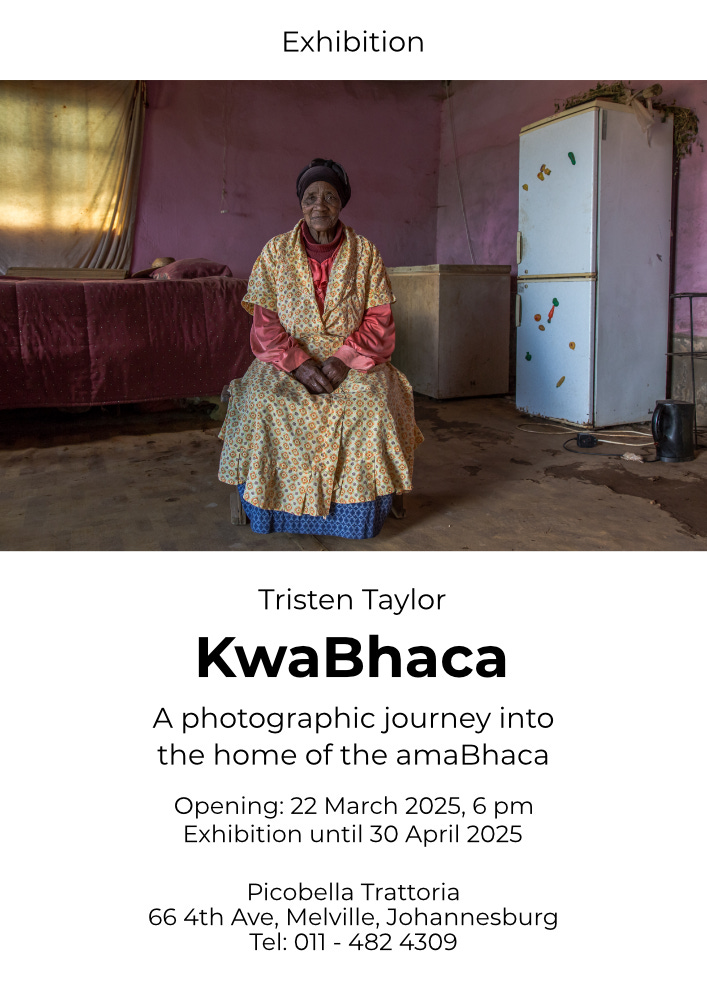
There's a HUGE story under a lot of BS if you ever want to leave a real mark. It has to do with the old Silk Road dark web site. You should start by reading the trial papers (a lot of them are still sealed.) Ask yourself: why did Ross get a sentence almost exactly like Bernie Madoff, and not like a drug kingpin? Why would anyone agree to sell drugs on the internet when doing so instantly changed the crime from a local misdemeanor (maybe a fine and a month) to a federal case (mandatory minimums and huge fines)? Where are the 100,000+ missing transactions and how was he getting "hacked" so easily? What were the charges against him? Why did the FBi say it only went after the "top 1%" of Silk Road "dealers." Read Ross' notebooks that he "accidentally" left behind. What was he REALLY doing at that library? Instead of accepting for a fact that Silk Road was what it claimed to be and putting a microscope on Bitcoin to see what that was, do the opposite. Imagine if Silk Road wasn't what we all assume it was. It's a pretty big story.